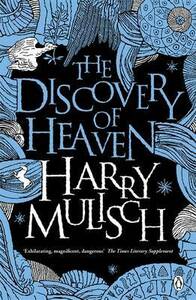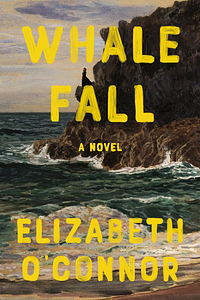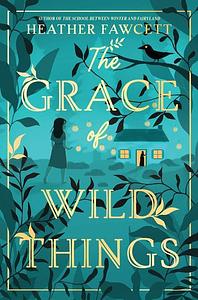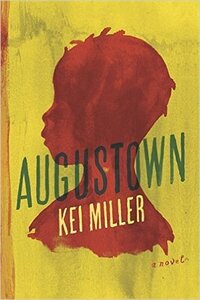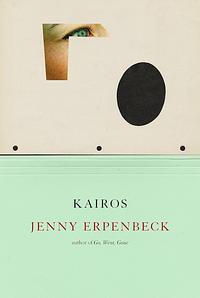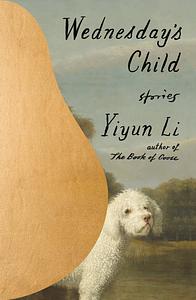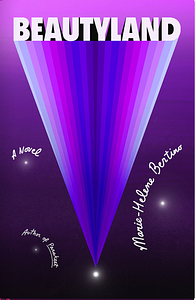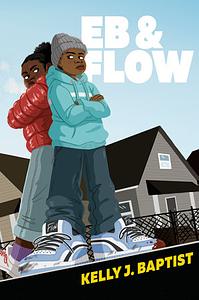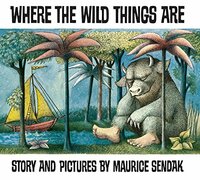Take a photo of a barcode or cover
scottjbaxter's reviews
582 reviews
The first Thursday in May is the next meeting of the Around the World Book Club at my local public library. Our destination is The Netherlands and I continue to read books on the topic even though I will only talk about one of them when we meet.
McLeod’s book is set in 18th century Suriname, so it is a novel about Dutch colonial history in one place in South America I have never visited and knew little about before reading. In my opinion, the book is good, but not great; the style is a bit clunky. I suspect that if I could read the original Dutch I would be more impressed. Much of the book is told from the perspective of the rich white colonists; I thought those told from the perspective of the slaves were more emotionally engaging. McLeod clearly spent a great deal of time doing historical research.
I recommend the book, but there are other stories about the formerly enslaved peoples of the Caribbean I would recommend more strongly. Specifically: Here Comes the Sun by Nicole Dennis-Benn, The Star Side of Bird Hill by Naomi Jackson, Pao by Kerry Young, or, for the brave, A Brief History of Seven Killings by Marlon James.
I would like to hear from you:
Do you have favorite authors from the Netherlands?
Do you have favorite colonial or post colonial writers?
This is a big book (900+ pgs in my translation) that takes big ideas seriously I will confess to occasionally getting lost, but there were many passages worth pondering and memorizing, like this one:
People returning from a journey carry the distances they have traveled with them like outspread wings—until they put the key in their front door. Then the wings fold up, and they are home again, as though in the center of an impassable steel ring on the horizon. The moment they close the door behind them, they can no longer imagine they have ever been away.
Or this one:
But their unending stream of theories, jokes, observations, and anecdotes was not their real conversation: that took place beneath these, without words, and it was about themselves. Sometimes it became visible in a roundabout way, like when in the past North Sea fishermen located a school of herring from its silvery reflection against the clouds.
Mulisch has written a big book with big ideas. If you enjoyed Umberto Eco’s Foucault’s Pendulum or enjoy history, philosophy and related topics then The Discovery of Heaven may be a book for you.
I’m sure I missed a lot not knowing too much Dutch history — the Hapsburgs, the House of Orange, the Spanish empire are all things I had to learn about on my own because they were not covered in my high school or university courses.
I didn’t quite understand the narrator’s fascination with Fidel Castro’s Cuba — to me it was and continues to be an authoritarian police state that happens to have warm weather. And the conspiracy with the supposed Ten Commandments ending in Jerusalem and the Dome of the Rock was odd at best.
As I said, a big book that takes ideas seriously.
Tell me in the comments:
Have you read any Mulisch?
What’s the last long book you were impressed by?
People returning from a journey carry the distances they have traveled with them like outspread wings—until they put the key in their front door. Then the wings fold up, and they are home again, as though in the center of an impassable steel ring on the horizon. The moment they close the door behind them, they can no longer imagine they have ever been away.
Or this one:
But their unending stream of theories, jokes, observations, and anecdotes was not their real conversation: that took place beneath these, without words, and it was about themselves. Sometimes it became visible in a roundabout way, like when in the past North Sea fishermen located a school of herring from its silvery reflection against the clouds.
Mulisch has written a big book with big ideas. If you enjoyed Umberto Eco’s Foucault’s Pendulum or enjoy history, philosophy and related topics then The Discovery of Heaven may be a book for you.
I’m sure I missed a lot not knowing too much Dutch history — the Hapsburgs, the House of Orange, the Spanish empire are all things I had to learn about on my own because they were not covered in my high school or university courses.
I didn’t quite understand the narrator’s fascination with Fidel Castro’s Cuba — to me it was and continues to be an authoritarian police state that happens to have warm weather. And the conspiracy with the supposed Ten Commandments ending in Jerusalem and the Dome of the Rock was odd at best.
As I said, a big book that takes ideas seriously.
Tell me in the comments:
Have you read any Mulisch?
What’s the last long book you were impressed by?
slow-paced
This is a short quiet novel about a young girl coming of age on a remote island off the coast of Wales in 1938. Only a few families live on the island, and, other than a whale carcass washing up on shore and a couple of ethnographers visiting and doing some interviews, there is not a lot of plot. The two events that do happen are Monad's (the main character) moving from girl to woman and the looming war with the Nazis, and even these events are oblique.
O'Connor's writing is not flashy, most of the sentences are not long, and there are not a lot of metaphors. I spent quite a bit of time asking myself why I liked this book so much. I never did come up with an answer. But I am glad I read Whale Fall.
I usually look for long books when I hope to achieve a sublime reading experience. But I have enjoyed many short novels. They include, in no particular order,: Stephen King's Elevation, Han Kang's The Vegetarian, Jenny Offill's Dept of Speculation, Samanta Schweblin's Fever Dream (truly odd and ethereal), Ben Lerner's Leaving the Atocha Station, Sayaka Murata's Convenience Store Woman, Sara Levine's Treasure Island!!!, Nicholson Baker's The Mezanine, Toni Morrison's Sula, Max Porter's Grief Is the Thing with Feathers, Stephen Graham Jones' Mapping the Interior.
What about you, do you have a favorite short novel?
reflective
I finished Kei Miller's Augustown for my Jamaica section of storygraph's read the world challenge; although let us not pretend that reading a single novel gives a foreigner any deep insight into a country. I heard about the novel from an article Marlon James had in the NYTimes about reading your way through Kingston, Jamaica.
The book is written in standard English but the dialogue is in Jamaican patois -- the audiobook version helped this part of the story come alive. Miller's book reminded me a bit of One Hundred Years of Solitude and Their Eyes Were Watching God. All three are about marginalized communities who have a strong sense of group solidarity.
I enjoyed just about all of Augustown, but I did find the ending a bit, um..., well, the author did end things with a big violent series of events. I certainly had never heard of Alexander Bedward before reading Miller's, so I feel I know just a bit more about the historys and religions of Jamaica.
Highly recommended.
The book is written in standard English but the dialogue is in Jamaican patois -- the audiobook version helped this part of the story come alive. Miller's book reminded me a bit of One Hundred Years of Solitude and Their Eyes Were Watching God. All three are about marginalized communities who have a strong sense of group solidarity.
I enjoyed just about all of Augustown, but I did find the ending a bit, um..., well, the author did end things with a big violent series of events. I certainly had never heard of Alexander Bedward before reading Miller's, so I feel I know just a bit more about the historys and religions of Jamaica.
Highly recommended.
challenging
emotional
sad
This book tells the story of Katharina, a ninteen year old woman who begins an affair with Hans, a married man in his mid fifties in the German Democratic Republic (East Germany) in the late ninteen eighties -- the time of the decline and fall of the communist police state. This relationship is a toxic and cruel one and certainly could be seen as a metaphor for that no longer extant country. Both the relationship between Katharina and Hans and the relationship between the East German Stasi (state police) and the residents of the country is/was filled with distrust, asymmetry, and cruelty. If you want to read a happy story, stay away from this book. However, Erpenbeck is a remarkably subtle writer; those familiar with East German history, geography, and politics will be fascinated, at least in my opinion.
In addition, at least in my English translation, Erpenbeck has great prose style. Here is a section I noted:
Beauty as a Trojan horse? That's not enough. And it's a trick. The contents are not cut-and-dried, art is a process, not a product. Beauty needs to be interwoven with truth. What you see at a glance and whatever lies beneath needs to be one and the same. As for that beauty, the poet said it is only the beginning of terror anyway. The contradictory nature of beauty. The searching that gives beauty its profundity. The joy of digging under the surface. The joy of questioning. The connection, therefore, between artist and working-class public is one that depends on the shared experience of work. At shift's end? One word leads to another. Certainly, art has nothing to do with a happy ending ...
A word about the title. In Ancient Athens, KAIROS was one of two words for time, along with CHRONOS. The concept refers to the appropriate time, effort, or amount and was originally associated with weaving and archery. KAIROS was a central concept of rhetoric -- the art of persuasion -- for Isocrates, Plato, and Aristotle. Rhetoric, at the time, was inseparable from philosophy, including poetics or the theory of art, ethics, and politics.
In addition, at least in my English translation, Erpenbeck has great prose style. Here is a section I noted:
Beauty as a Trojan horse? That's not enough. And it's a trick. The contents are not cut-and-dried, art is a process, not a product. Beauty needs to be interwoven with truth. What you see at a glance and whatever lies beneath needs to be one and the same. As for that beauty, the poet said it is only the beginning of terror anyway. The contradictory nature of beauty. The searching that gives beauty its profundity. The joy of digging under the surface. The joy of questioning. The connection, therefore, between artist and working-class public is one that depends on the shared experience of work. At shift's end? One word leads to another. Certainly, art has nothing to do with a happy ending ...
A word about the title. In Ancient Athens, KAIROS was one of two words for time, along with CHRONOS. The concept refers to the appropriate time, effort, or amount and was originally associated with weaving and archery. KAIROS was a central concept of rhetoric -- the art of persuasion -- for Isocrates, Plato, and Aristotle. Rhetoric, at the time, was inseparable from philosophy, including poetics or the theory of art, ethics, and politics.
dark
emotional
reflective
sad
slow-paced
Plot or Character Driven:
Character
Yesterday I recommended Yiyun Li to my friend Ted. I said that she is a poet of sadness and grief; her sentences are well crafted; and she is writing for people who pay attention to serious books.
I liked this section from the story Hello, Goodbye
There was a difference between forgetting and not remembering. Nina was not as forgetful as Katie thought; it was just that she did not indulge herself by bringing the past into focus. Nina did not believe in the benefit of seeing the past or the future with too much clarity -- one could lead to undue nostalgia, the other to unwarranted alarm. The present was another matter. She wanted to be as clear-eyed as possible about the present.
I liked this section from the story Hello, Goodbye
There was a difference between forgetting and not remembering. Nina was not as forgetful as Katie thought; it was just that she did not indulge herself by bringing the past into focus. Nina did not believe in the benefit of seeing the past or the future with too much clarity -- one could lead to undue nostalgia, the other to unwarranted alarm. The present was another matter. She wanted to be as clear-eyed as possible about the present.
funny
hopeful
lighthearted
reflective
Plot or Character Driven:
Character
Strong character development:
Yes
Loveable characters:
Yes
The book, something of a bildungsroman, is the story of Adina -- a woman raised by a single Italian American woman in Northeast Philadelphia. The thing that makes the book unique can be summed up in this line where Adina shares her big secret.
"What would you say if I told you I was from another planet?" she says. "And that I was here to take notes on human beings that I fax back to my superiors. And that it's possible one day they'll signal to me that it's time to go?" (p. 233)
Despite this extraterrestrial communication, Bertino's book is, at least in my opinion, tender and bittersweet. At times I wondered if I was reading a fictionalized version of the author's own life. The book reminds me quite a bit, at least in tone, of the 2012 movie Safety Not Guaranteed. Roger Ebert described that movie as follows.
Few descriptions of "Safety Not Guaranteed" will do it justice. It's a more ambitious and touching movie than seems possible, given its starting point, which is this classified ad in an alternative newspaper:
WANTED: Someone to go back in time with me. This is not a joke. You'll get paid after we get back. Must bring your own weapons. I have only done this once before. SAFETY NOT GUARANTEED.
Bertino's book, in addition to being a gentle description of a woman who never quite feels like she fits in, is filled with a dry sense of humor. For example, at one point the space aliens ask Adina
IS EARTH SUITABLE FOR US TO LIVE?
She responds: "The parking is awful. You'd have to move your spaceship twice a week." Bertino is not the first person to admit to be mystified by New York City's alternate side parking rules.
I enjoyed Beautyland quite a bit.
"What would you say if I told you I was from another planet?" she says. "And that I was here to take notes on human beings that I fax back to my superiors. And that it's possible one day they'll signal to me that it's time to go?" (p. 233)
Despite this extraterrestrial communication, Bertino's book is, at least in my opinion, tender and bittersweet. At times I wondered if I was reading a fictionalized version of the author's own life. The book reminds me quite a bit, at least in tone, of the 2012 movie Safety Not Guaranteed. Roger Ebert described that movie as follows.
Few descriptions of "Safety Not Guaranteed" will do it justice. It's a more ambitious and touching movie than seems possible, given its starting point, which is this classified ad in an alternative newspaper:
WANTED: Someone to go back in time with me. This is not a joke. You'll get paid after we get back. Must bring your own weapons. I have only done this once before. SAFETY NOT GUARANTEED.
Bertino's book, in addition to being a gentle description of a woman who never quite feels like she fits in, is filled with a dry sense of humor. For example, at one point the space aliens ask Adina
IS EARTH SUITABLE FOR US TO LIVE?
She responds: "The parking is awful. You'd have to move your spaceship twice a week." Bertino is not the first person to admit to be mystified by New York City's alternate side parking rules.
I enjoyed Beautyland quite a bit.
emotional
funny
fast-paced
Plot or Character Driven:
A mix
Strong character development:
Yes
Loveable characters:
Yes
Diverse cast of characters:
Yes
Flaws of characters a main focus:
Yes
Last night I was looking at Betsy Bird's coverage of the American Library Association youth media awards. As can be expected, a few books were not given any awards. She wrote:
For my part, I would like to honor the books that I loved and wished would get something, but didn’t. Imagine me playing taps as I read off their names. They were good books. They were great books. They will be remembered in other ways. don’t you even worry about that.
One of the books she listed was Eb & Flow. This book is the story of two tweens Ebony (Eb) and De'Kari (Flow) who are each serving a ten day suspension for fighting. The novel is told in verse and each short section (stanza) is a first person perspective, switching from Eb to Flow throughout the book. The story begins shortly after the fight between the two and, other than a very few pages at the very end, the two do not interact, which I did not expect.
The novel is fast paced; I breezed right through it. Since the book is constantly switching from the perspective of one character to another it also includes a wide variety of tones and emotions. I took a picture of one section of the book where Eb goes from bored to turning a math worksheet into silly humor.
I thoroughly enjoyed Baptist's book. If you have not read a children's book in some time but would like to, then I would suggest you look for a copy of Eb & Flow at your local library or bookstore.
For my part, I would like to honor the books that I loved and wished would get something, but didn’t. Imagine me playing taps as I read off their names. They were good books. They were great books. They will be remembered in other ways. don’t you even worry about that.
One of the books she listed was Eb & Flow. This book is the story of two tweens Ebony (Eb) and De'Kari (Flow) who are each serving a ten day suspension for fighting. The novel is told in verse and each short section (stanza) is a first person perspective, switching from Eb to Flow throughout the book. The story begins shortly after the fight between the two and, other than a very few pages at the very end, the two do not interact, which I did not expect.
The novel is fast paced; I breezed right through it. Since the book is constantly switching from the perspective of one character to another it also includes a wide variety of tones and emotions. I took a picture of one section of the book where Eb goes from bored to turning a math worksheet into silly humor.
I thoroughly enjoyed Baptist's book. If you have not read a children's book in some time but would like to, then I would suggest you look for a copy of Eb & Flow at your local library or bookstore.

